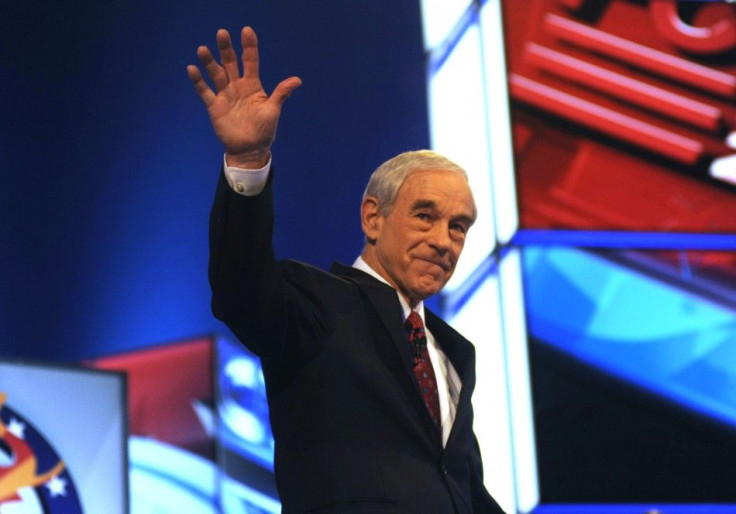Departing Ron Paul Flexes Movement's Muscle In Tampa

Four years ago Ron Paul was a presidential after-thought, a perennial fringe candidate whose unwavering libertarian views had failed to take hold in the Republican mainstream.
But with a massive rally marking the end of his latest long-shot presidential bid, the Texas Republican demonstrated that his supporters will be making their presence known at the GOP's National Convention in Tampa, Fla. As his career draws to a close, the principles he has espoused for years have finally begun to pervade Republican thought.
"It's coming about, not only because I believe we're right on the issues, but what is coming out right now is proof-positive that their philosophy of government -- foreign policy, monetary policy or economic policy -- is failing, and they need to do something different," Rep. Paul told supporters during a rally Sunday night at the University of South Florida.
Despite Paul controlling GOP delegations from Nevada, Iowa and Minnesota -- party leaders wrested away half the Maine delegates Paul supporters had laid claim to -- Paul will not be formally nominated. And he will not be speaking at the convention, saying in an interview that he was offered an opportunity to do so only if he endorsed Mitt Romney.
"It wouldn't be my speech," Paul told The New York Times. "That would undo everything I've done in the last 30 years. I don't fully endorse him for president."
But there are still abundant signs in Tampa that Paul's influence has grown since 2008. Hundreds of Paul backers will be attending the convention, and they have had more input on proposing planks in the party platform. Supporters were particularly pleased with draft language that reiterated Congress' sole authority to declare war and called for an audit of the Federal Reserve.
"We go from an unknown entity, basically to a movement that has had a major impact on the Republican Party, and personally I think a very positive impact on the Republican Party, even though the more established Republicans are hesitant and resistant," said Drew Ivers, who chairs Paul's Iowa delegation.
Paul said early in his campaign that this would be his last term in Congress, marking the end of a 30-year career. The Republican National Convention will feature a video tribute honoring his years of service.
It will also feature the potential heir to Paul's role as the libertarian standard-bearer within the Republican Party: Senator Rand Paul of Kentucky, his son, who has been given a speaking slot. The younger Paul has also espoused his father's small-government philosophy, breaking with his party to oppose the Patriot Act and calling for the abolition of the Federal Reserve.
Those goals continue to resonate with Rep. Paul's legions of devoted followers, but the underlying belief in limited government and fewer economic regulations has found traction in the tea party era.
Particularly among the wave of new Republicans who in 2010 rode widespread anti-establishment fervor to Congress, lawmakers "are picking it up in part, a little here and a little there," Ivers said. "Even though you may not have one representative or senator who typifies Ron Paul, cumulatively you can have a torch-bearer in composite."
© Copyright IBTimes 2024. All rights reserved.





















